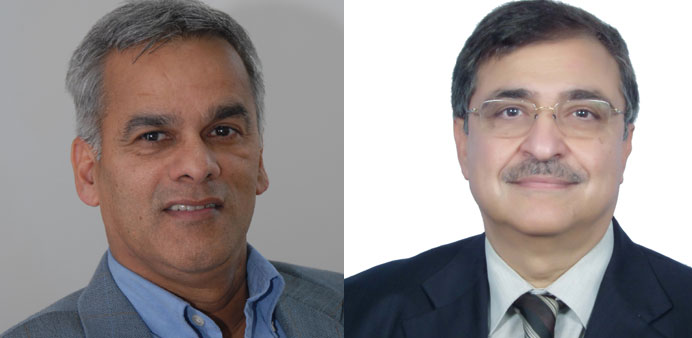A mobile learning application ‘m-learning’ being developed by Qatar University (QU) is set to change the face of corporate technical training in Qatar’s oil and gas sector.
The ‘m-learning’ project, which recently received an honourable mention from the International e-Learning Association, was awarded a three-year grant under Qatar National Research Fund’s (QNRF) flagship National Priorities Research Programme (NPRP).
The research is underway in partnership with Canada’s Athabasca University and is led by Dr Mohamed Ally from the same university.
According to the co-lead researcher for the ‘m-learning’ project Dr Mohamed Samaka, the research which is now in its second year, is the first of its kind to be used for professional training in Qatar and possibly the world’s oil and gas sector.
“There is no history of mobile learning applications utilised to train employees in the work place in Qatar. This project is novel,” Dr Samaka said adding: “During our most recent literature review, a hunt for existing applications yielded nothing, indicating that this could be the first mobile learning application under development in the oil and gas industry worldwide.”
Testing of the ‘m-learning’ project was conducted on a pool of around 30 Qatari trainees located at five different Qatar Petroleum (QP) sites as a supplementary element to their on-going corporate training.
The application is designed to help employees familiarise themselves with technical English language terms specific to the energy sector in order to enhance their professional communication.
“Mobile learning is an evolving style of education delivery and through ‘m-learning’ we are establishing instruction methods to suit professional training at the corporate level,” Dr Samaka informed.
He added that the innovative aspect of the project was the marriage of paedagogy and technology to develop an entire solution for QP’s employee training needs.
‘M-learning’ uses a blended approach to deliver specialised content on mobile devices with unlimited access to the material, allowing learners to advance at their own pace and convenience.
“We are not looking to replace conventional classroom teaching. ‘m-learning’ complements face-to-face teaching by enhancing the educational experience through our developed interactive multimedia content, based on existing course material,” he explained.
This QNRF-funded project is aligned with the Qatar National Vision 2030; it is a contribution to Qatar’s advancement towards a knowledge-based economy by facilitating learning and knowledge dissemination. Although ‘m-learning’ is in the fine-tuning stages of further development and testing, Dr Samaka is confident the benefits of the tailor-made application could extend far beyond the oil and gas industry.
“We are currently testing ‘m-learning’ on QU’s foundation level students learning English. I am sure once it is fully developed ‘m-learning’ can be deployed into other areas of society, at school or university level, due to the nature of its interchangeable and adaptable content,” he explained.
QNRF funds this project as part of its aim to develop a local culture to support research that will benefit Qatar, the region, and the world.
The NPRP encourages international research collaboration with institutions in Qatar, as in the case of this grant.
To learn more about QNRF-funded research or to participate in one of QNRF’s programmes visit: www.qnrf.org

